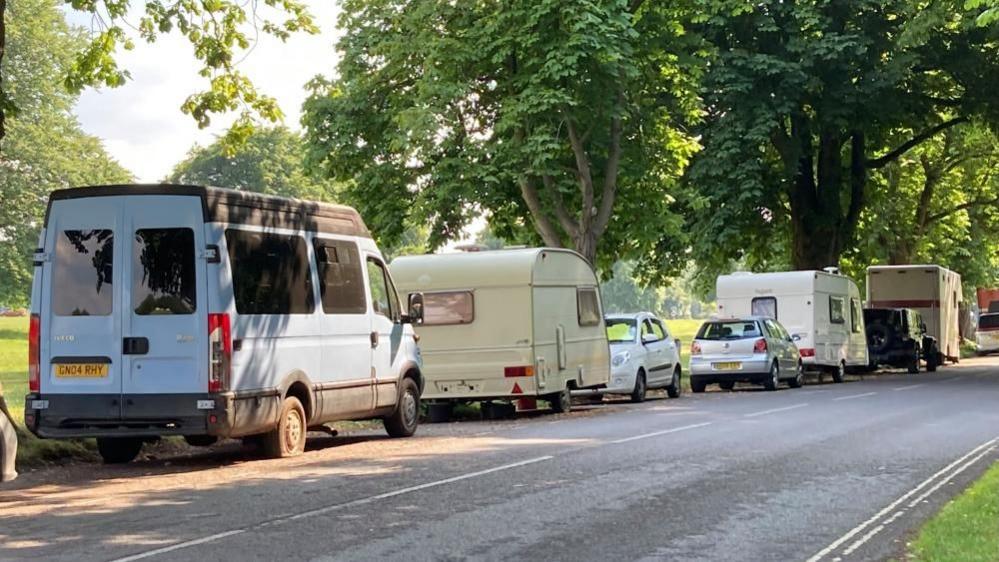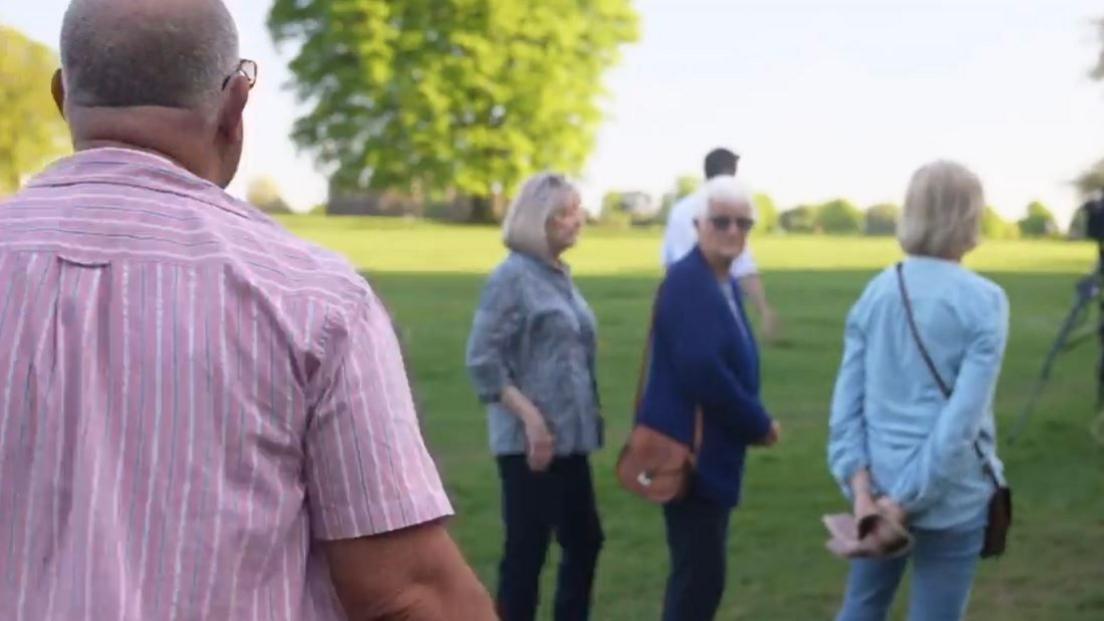Will van dwellers be moved from all of the Downs?
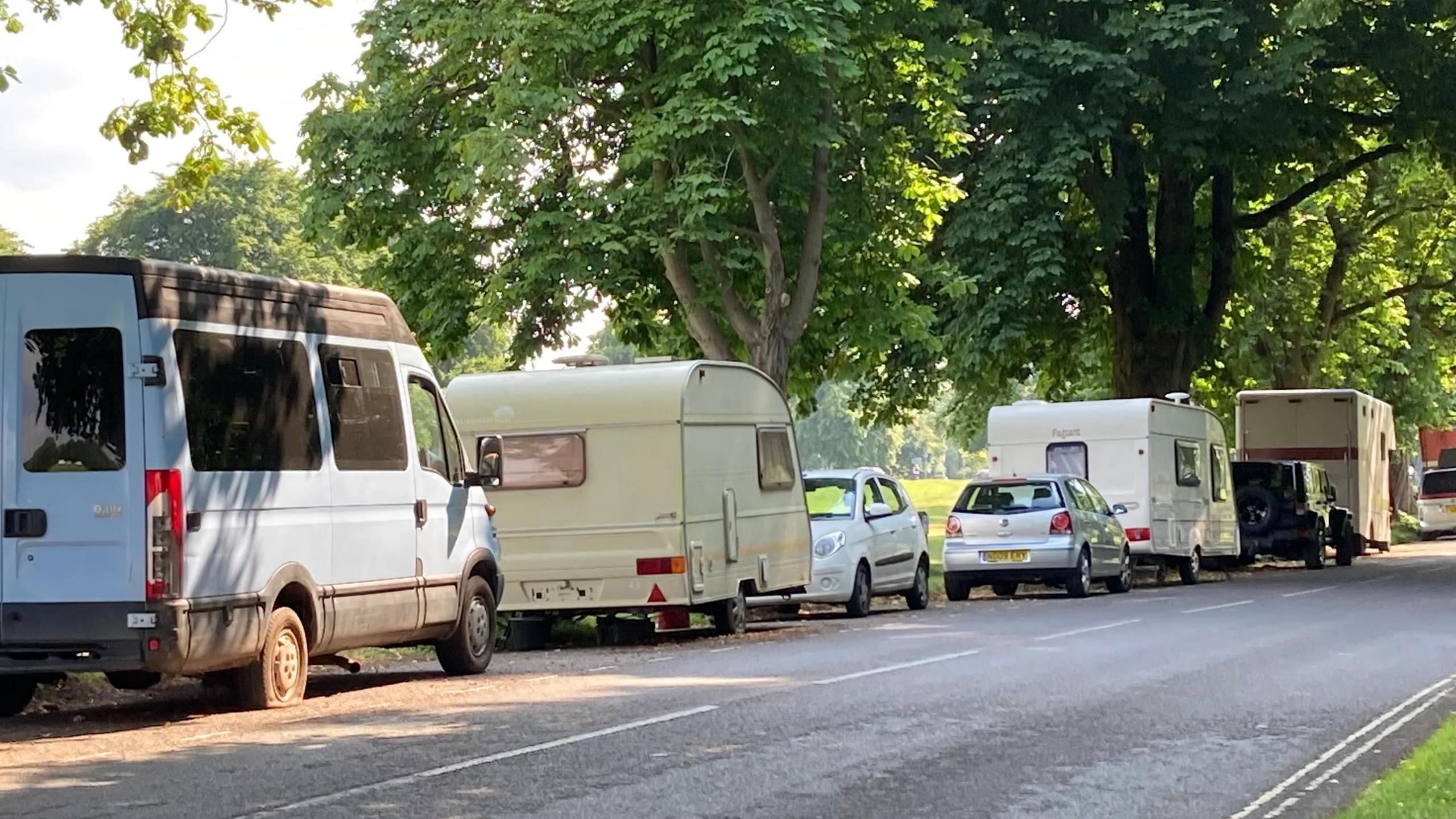
Bristol City Council is seeking an injunction to move people on from the area
- Published
Bristol City Council's announcement that it is going to take enforcement action against people living in vehicles on the city's Downs is a much bigger move than has previously been attempted.
The council said it needs to take action after "makeshift toilets" were found in some of the wooded areas near to the vehicles.
This is not the first time the council has taken action around the Downs. In July it succeeded in getting a court injunction to prevent people from living on the grassed areas.
The biggest change this time is that the authority is going to be seeking an injunction to prevent people living on the roadside - but the question remains how this will work in practice.
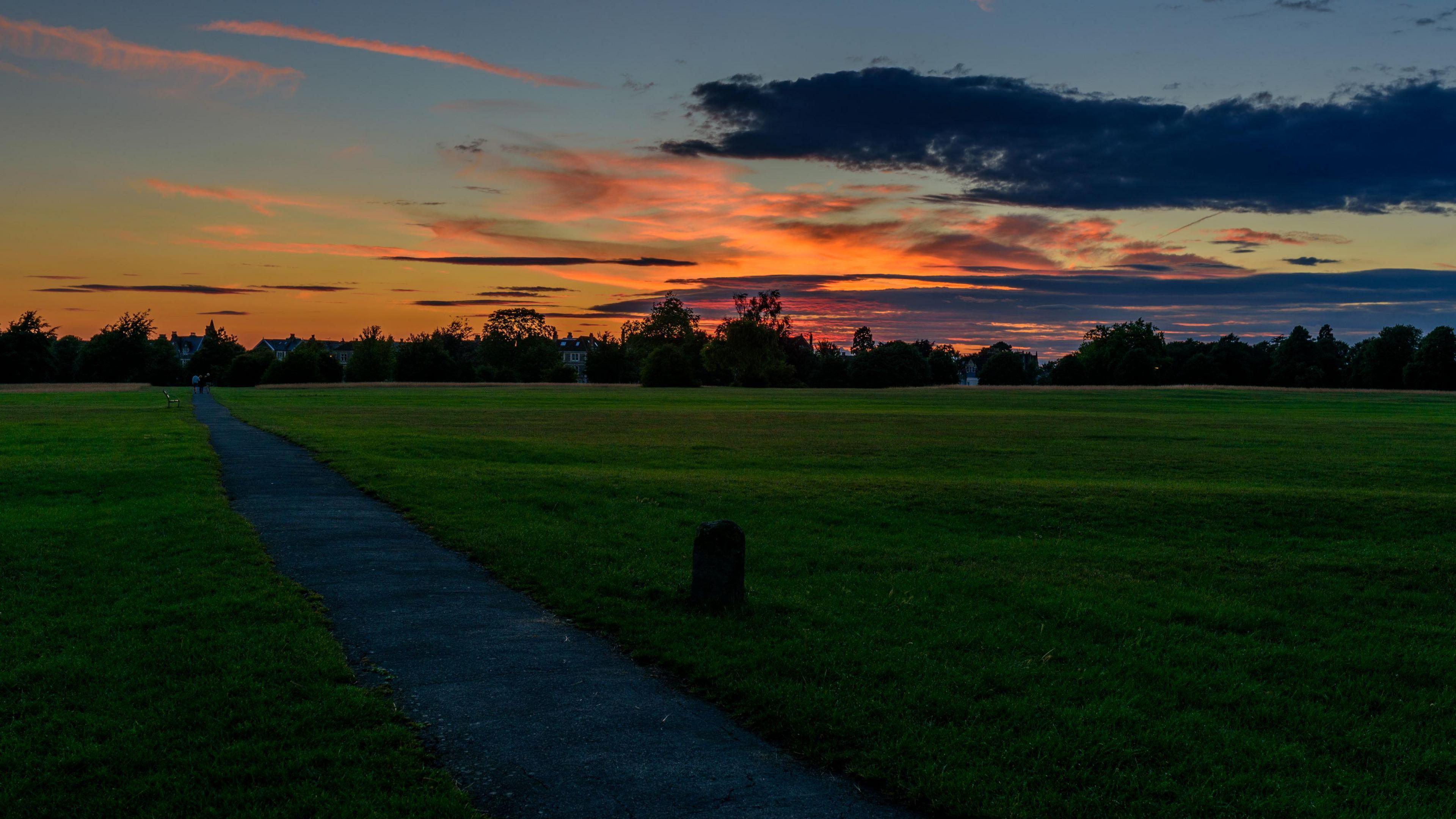
The green spaces of the Downs are popular for sports and dog walking
The discovery of human waste means the groups of vehicle dwellers are now deemed to be having a "high impact" on the green space.
In line with longstanding policy, when an encampment is judged in that way, the council will try to move people on - those rules have been applied to other groups of vehicles in the city, such as around Greenbank Cemetery and New Stadium Road.
But is a court likely to grant an injunction covering all the roads across the Downs?
Will the injunction apply only to those vehicles that are present when it comes into effect? Or will it apply for a period of time to any van dweller who seeks to live in the area?
These are questions that council legal teams will be wrangling with as they flesh out the details of this week's announcement.
What happens next?
Barry Parsons, chair of the Homes and Housing Delivery Committee on the city council, told the BBC his "working assumption" is that the authority will be looking to take action across the whole of the Downs.
If not, people could just move round the corner from their current spots, to another bit of road through or around the green space.
But it is clear when you visit the van dwellers that the different groups have different characteristics.
People living on Parry's Lane seem almost certain to be subject to any injunction the council applies for, but those living on Circular Road told us this week that it is unfair to suggest they are using the Downs as a toilet.
As the council itself says, "most vehicle dwellers will not be engaging in this sort of behaviour". Many have universal keys for the nearby public facilities, for example.
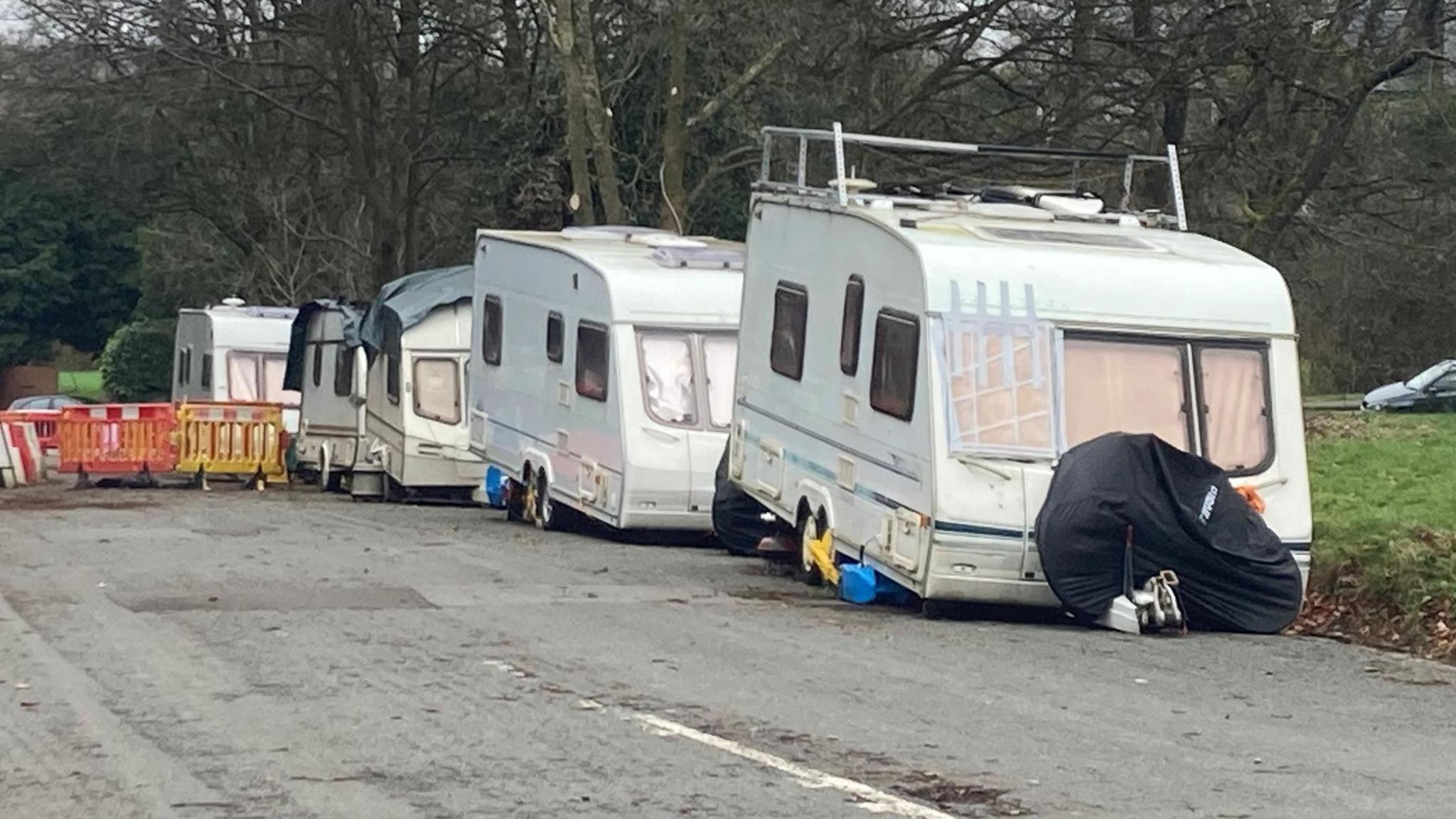
Lines of vans and caravans are visible at different spots on the Downs
Legal officers and ultimately the courts will have to decide whether closing all the roads on the Downs to all vehicle dwellers is a proportionate response. The city council is clear that the general public has a right to use the Downs without the risk of the "serious hazard" presented by human waste.
"We have a duty to make sure the Downs is accessible to all and that we are not allowing parts of it to become 'no go' zones"," councillors said in a statement this week.
But details so far have been scant, with Mr Parsons saying that the council will be putting together its case "over the next few weeks".
Without those details it is far from clear whether the action will be sweeping enough to prevent people living on the entire Downs.
And even if the council does succeed in its stated ambition, it is far from clear where people living in vans would go next.
Related topics
- Published29 April
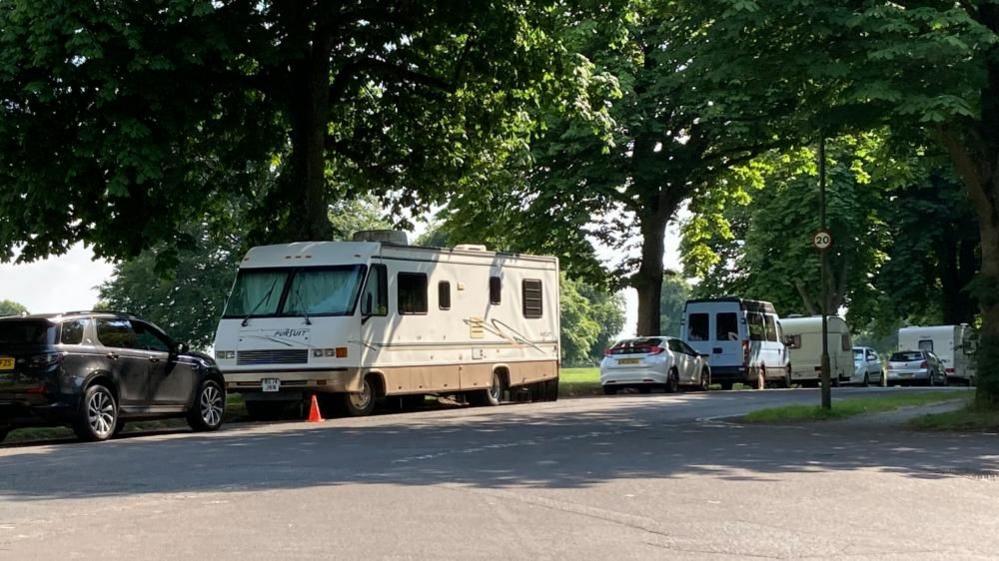
- Published26 March
